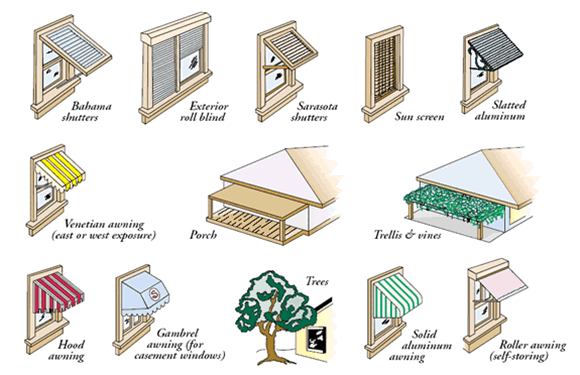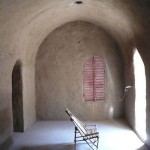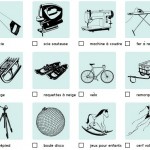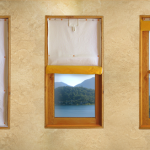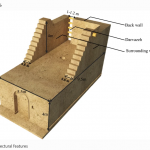“In sunny southern locations, protecting your windows from the sun is an important component of good window management. The first step is to know how the sun moves through the sky and to orient the building and place the windows in it so as to minimize direct solar admission through your windows.” Read more.
“Sustainable By Design provides a suite of shareware design tools to calculate the right dimensions and placing for your specific location, wherever you are.
- SunAngle: our premier tool for solar angle calculations.
- SunPosition: calculates a time series of basic solar angle data.
- Sol Path: visualization of the path of the sun across the sky.
- Window Overhang Design: visualization of the shade provided by a window overhang at a given time.
- Window Overhang Annual Analysis: visualization of window overhang shading performance for an entire year.
- Overhang Recommendations: suggested climate-specific dimensions for south-facing window overhangs
- Light penetration: visualization of the penetration of sunlight into a room
- Louver Shading: visualization of louvered shading system performance for an entire year.
- Vertical Fin Shading: visualization of a vertical fin shading system performance for an entire year
- Window Heat Gain: calculation of monthly heat gain through windows.
- Panel Shading: visualization of the shading of rows of flat panel collectors throughout the year.”
Interesting follow-up at Treehugger.
